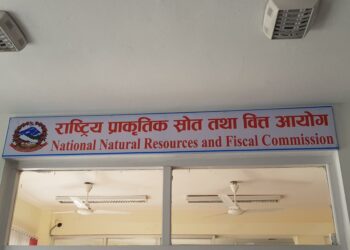KATHMANDU: A new ordinance aimed at regulating cooperatives and ensuring the return of funds lost by depositors is set to reach the President’s office at Shital Niwas on Thursday.
The decision follows a Cabinet meeting on Tuesday evening, which approved amendments to the Cooperative Act of 2017, the Nepal Rastra Bank Act of 2002, and the Deposit and Credit Protection Fund Act of 2016.
Communications and Information Technology Minister Prithvi Subba Gurung confirmed on Wednesday that the Cabinet had decided to issue the ordinance.
The ordinance, once signed by President Ram Chandra Paudel, will make provisions to ensure the recovery of deposits for those affected by cooperative scams. As per the Constitution, ordinances can be issued when Parliament is not in session, allowing the government to take urgent action.
The new ordinance will abolish the National Cooperative Development Board Act of 1992 and transfer the Board’s assets, liabilities, and authority to a newly established National Cooperative Regulation Authority.
The ordinance also introduces measures for cooperative registration, loan repayment, and deposit return. In particular, it stipulates that the first priority for repayment will go to cooperative members who have deposited up to Rs 500,000.
For amounts exceeding Rs 500,000 rupees, repayment will be made proportionally based on the financial standing of the cooperative.
Additionally, the ordinance outlines a plan for selling collateral pledged by cooperatives to recover debts.
Should the proceeds exceed the amount owed, the surplus will be returned to the borrower. It also specifies that cooperatives will be required to use rental income from assets like land and machinery to pay back depositors.
In an effort to address the regulatory shortcomings in cooperative institutions, the government has also proposed restrictions on cooperative membership, ensuring that a person cannot belong to multiple cooperatives of the same type.
New limits on individual savings and loans have also been set based on the cooperative’s operational area.
This move comes after the Supreme Court raised concerns over the government’s failure to resolve the cooperative victims’ issues.
Senior advocate Surendra Bhandari filed a writ petition, leading to a hearing where the government was ordered to appear before the Court for further discussions.
The case will be reviewed in detail on January 20, when government representatives will need to present a report on the implementation of related parliamentary committee recommendations.









Comment